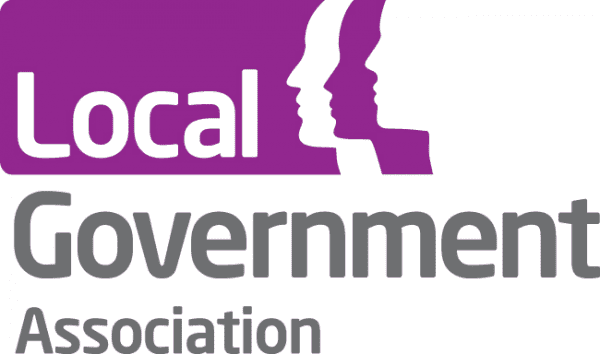Communities may suffer the loss of leisure and cultural facilities, fewer bus services, unkempt parks and green spaces and see fly-tippers go unpunished without government investment in under-pressure council services.
The Local Government Association is today launching its campaign to influence the forthcoming Spending Review by warning about the growing risk to vital local services if the Government does not take action to secure the financial sustainability of councils.
However, the LGA said that, with the right funding and powers, councils can continue to lead their local areas, improve residents’ lives, reduce demand for public services and save money for the taxpayer.
Between 2010 and 2020, councils will have lost almost 60p out of every £1 the Government had provided for services.
Some councils are being pushed to the brink by this unprecedented loss of funding and an ongoing surge in demand for children’s services, adult social care services and homelessness support. This is on top of having to absorb other cost pressures, such as higher national insurance contributions, the apprenticeship levy and the National Living Wage.
More and more councils are struggling to balance their books, facing overspends and having to make in-year budget cuts.
Councils provide more than 800 services to residents in their local area – some of these are legal duties they have to provide whilst others are optional powers they can use depending on local priorities.
Money is increasingly having to be diverted from these optional services, which help build communities people want to live in, to plug growing funding gaps, while some councils have already been forced to cut their services back to the legal minimum “core offer”.
With councils in England facing an overall funding gap of £8 billion by 2025, local government leaders fear many more will have to take similar action.
That could mean many cherished local – but discretionary – services such as the maintenance of parks, improving food hygiene and safety, certain bus services, cultural activities and council tax support for those in financial difficulty – face being drastically cut back by councils across the country.
To illustrate the point, the LGA has produced a list of 7 popular discretionary services that councils might need to consider reducing in order to meet their statutory duties:
|
|
Rural and post-16 school bus services | Nearly half of all bus routes in England currently receive partial or complete subsidies from councils. Faced with funding pressures, councils will struggle to maintain current discretionary subsidies for bus routes across the country – such as free peak travel, community transport services and post-16 school transport. |
|
|
Council tax support/discounts | Councils can apply council tax discounts for people experiencing financial hardship. Council tax support schemes are no longer fully funded by central government with £1.7 billion lost between 2013 and 2020. As a result, more than half a million households no longer receive council tax support as councils are unable to protect discounts. |
|
|
Issuing penalty notices for fly-tipping and graffiti. Litter bins – provision and maintenance | Councils recorded 997,553 incidents of illegal fly-tipping last year, an average of more than 2,700 a day. Councils were given the power to issue on-the-spot fines of up to £400 to fly-tippers in 2016. |
|
|
Support and training for businesses to ensure food hygiene and standard | Trading Standards budgets and staffing have been cut by around half since 2010. This is already making it extremely difficult for some councils to maintain previous levels of food standards work, given the competing demands of areas such as social care and children’s services. |
|
|
School crossing patrols
|
Recent analysis by the BBC found the number of school crossing patrollers funded by councils in the UK has fallen by 1,500, almost a quarter, in five years. |
|
|
Museums and galleries – provision and maintenance
|
Local authorities have protected spending on statutory services at the expense of discretionary services. In a report on the financial sustainability of local authorities last year, the National Audit Office found that adult and children’s social care services have seen a reduction of 3.3 per cent and an increase of 3.2 per cent in real terms, respectively. In contrast, spending on cultural and related services fell by 34.9 per cent. |
|
|
Management and improvement of parks and green spaces | An investigation by the Mail on Sunday recently found that one in three parks no longer has any staff on site, park funding has been reduced by at least £15 million in the past two years, with 95 per cent of councils expecting to make further cuts to parks in the next five years. |
Local government leaders are also clear that the scale of the funding gaps and demand facing children’s services, adult social care and homelessness support mean scaling back discretionary services will not be enough to protect the ability of councils to provide dignified care for older and disabled people, protect children, and support those experiencing or facing homelessness.
Cutting these discretionary – often preventative – services is also a false economy as they can help alleviate pressure on statutory services. Other parts of the public sector, such as the NHS, are also then forced to pick up the pieces. For example, parks and leisure facilities can help improve the health and wellbeing of residents.
With sustainable funding, councils can make a difference to people’s lives by building desperately-needed homes, creating jobs and school places, providing dignified care for our elderly and disabled and boosting economic growth.
LGA Chairman Lord Porter said:
“The money local government has to provide vital services is running out fast and huge uncertainty remains about how councils will pay for services into the next decade and beyond.
“If the Government fails to adequately fund local government then it will be our local communities and economies who will suffer the consequences. It will be those who rely on vital adult social care to live independent lives, rural bus routes to get out and about, council tax support to ease financial burdens and those who value clean streets, green spaces and roads fit for the purpose.
“The Spending Review will be make or break for vital local services and securing the financial sustainability of councils must be the top priority.
“This is the only way to ensure councils can meet their legal duties to provide dignified care for our elderly and disabled, protect children, and prevent and reduce homelessness and protect the wide-range of other valued local services which also make such a positive difference to communities and people’s lives.”
Help keep news FREE for our readers
Supporting your local community newspaper/online news outlet is crucial now more than ever. If you believe in independent journalism, then consider making a valuable contribution by making a one-time or monthly donation. We operate in rural areas where providing unbiased news can be challenging. Read More About Supporting The West Wales Chronicle























